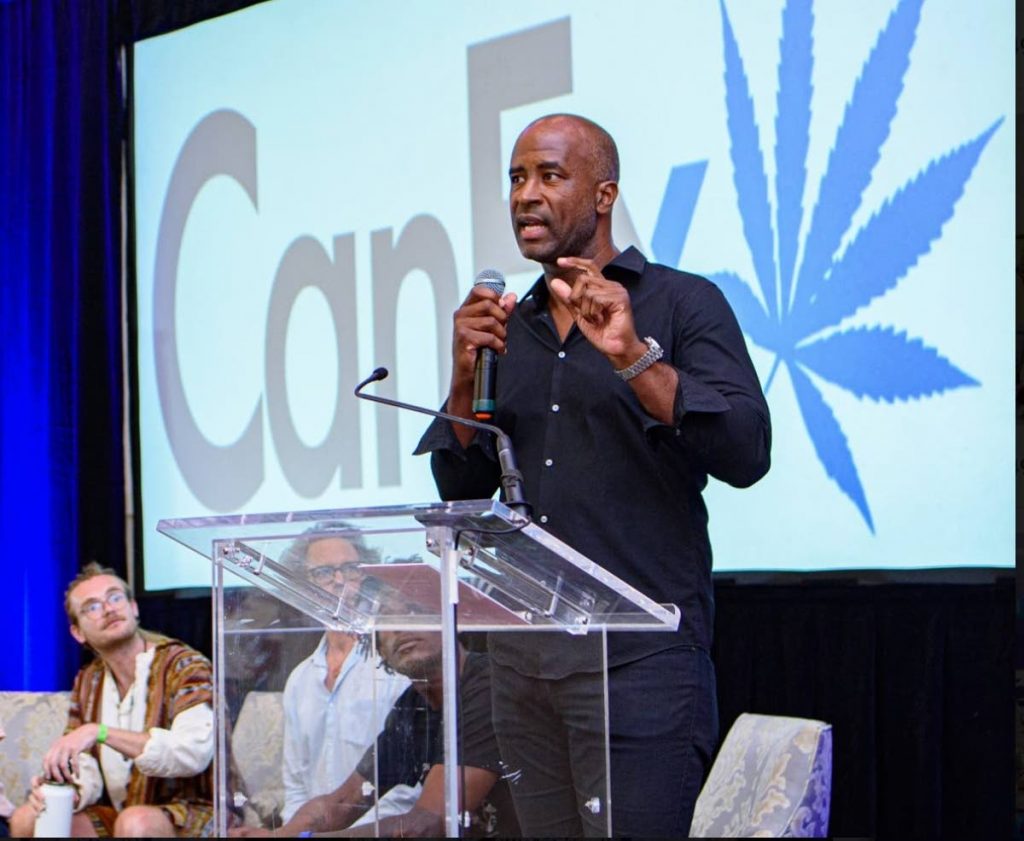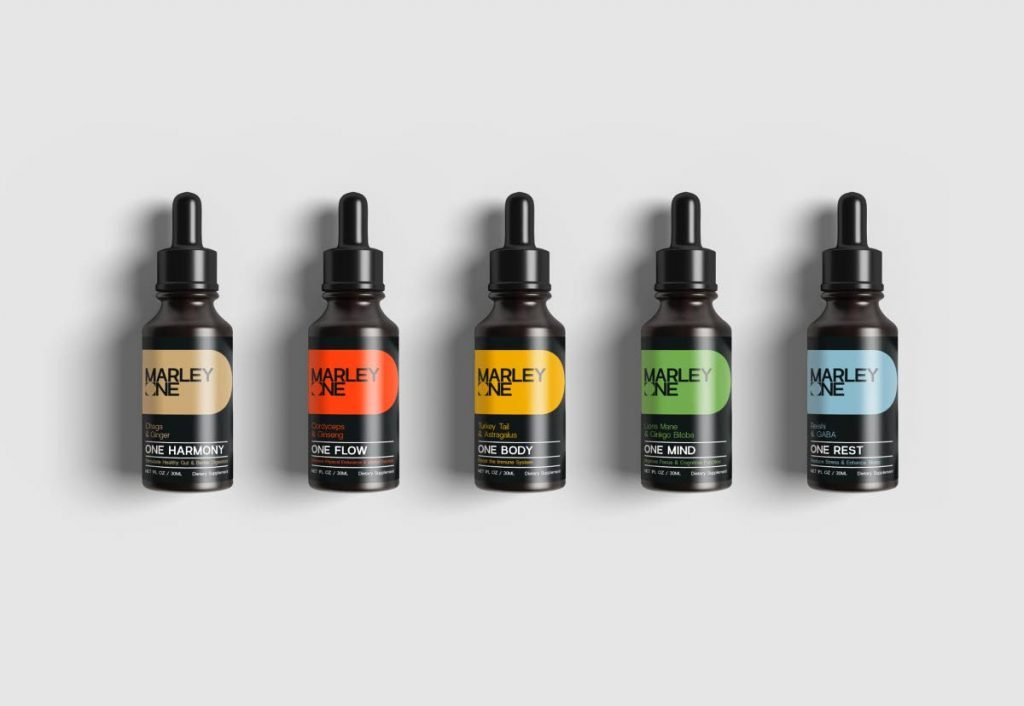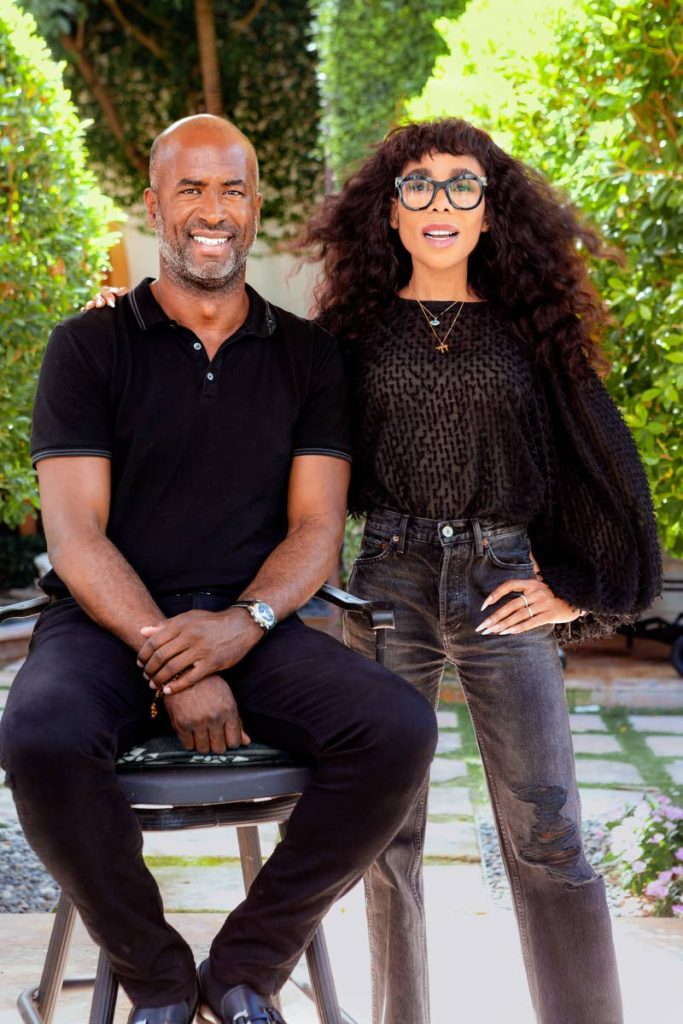Healing with mushrooms: Trinidad and Tobago businessman teams up with Bob Marley group

Trinidad and Tobago-born businessman Douglas Gordon – the founder of cannabis company CanEx Jamaica and CEO of leading psychedelics company, Toronto-based Silo Wellness Inc – has joined forces with the family of music legend Bob Marley.
They have released Marley One – the first line of mushrooms for medicinal and recreational use in the region.
Gordon, who lives in Jamaica and has over 30 years experience in finance, media, sales and marketing, was thought to be ahead of the curve in the business of cannabis in the Caribbean. He maintains his position of not being ahead of the game, but rather, helping the region to keep up with what is happening in the rest of the world.
"I don't think I'm doing anything bold," Gordon told Business Day while discussing the benefits of functional and the psychedelic psilocybin mushrooms – from aiding in overcoming addiction to managing anxiety and depression.
The product line includes One Mind – a coffee-flavoured blend of lion’s mane and gingko biloba designed to improve focus and cognitive function, One Flow – the peppermint-flavoured blend of cordyceps and ginseng designed to enhance physical endurance and mental function, and One Harmony – a mango-flavoured blend of chaga and ginger designed to stimulate gut health and improve digestion.
"There are five skews of functional mushroom products that are not psychedelic. We get to debunk myths of all mushrooms having psychoactive components – you won't have changes in your perception of anything. From that perspective, there is not anything to worry about. We formulated our blends to include things Caribbean people would also be familiar with would have even used."
He said the collaboration with the Marley family started in early 2020 and they worked on formulating the brand to communicate what he felt honoured the history and legacy of what Bob Marley represented.
"But it also provided a pathway forward that is a fresh application of what he means to people through this other way of connecting them to natural solutions that can help us heal ourselves."
Asked about the reception of the brand's newest line of products, Gordon said, "It went well beyond our expectations."

The team focused on putting together a world-class product. Gordon said Cedella Marley, Bob Marley's daughter who is the CEO of the Bob Marley Group of Companies, was involved throughout the process. She was involved in everything from brand aesthetics to flavouring.
"The Marley family is particular about what they won't associate the brand with. While they understood what we were going to do from a global perspective, the plant medicine component and why it made sense, they were also particular about how that manifested."
After building a global team digitally and communicating with them mostly via many Zoom meetings, Douglas said there is still much work to be done.
While the company's products are not yet legal everywhere, as is in the case of TT – he said the future is bright for psychedelics in the Caribbean as it has been globally. He said the response across the region indicates great potential.
"Too often we embrace a conservatism that is only maintained in the Caribbean, and make it as if we aren't ready for this or that."
At a psychedelic summit hosted by CanEx last month, Jamaica's minister of agriculture and fisheries, Floyd Green said the government has already put interim protocols in place to facilitate the cultivation and processing of psilocybin mushrooms in Jamaica.
St Vincent and the Grenadines minister of agriculture, forestry, fisheries, rural transformation, industry and labour Saboto Caesar, who was a panellist at the summit, said, "St Vincent is also one of the few island states that do not have laws prohibiting the production of psilocybin mushrooms. I intend that we are not left out of this emerging space.”
TT's laws were only recently amended in 2019 to to allow adults to have in their possession up to 30 grammes of marijuana and each adult in every home can own up to four plants. Recently in June, a parliament committee submitted a report on regulating the local cannabis industry. The bill is yet to be debated. The use of psilocybin mushrooms is not part of the bill.

Gordon, however, stands by his belief in the prospects of the cannabis and mushroom industry.
"The truth of the matter is, when people have an opportunity to step in and have some of these transformative experiences, I would not want to hold it back from anyone."
Asked why mushrooms, Gordon said, "The first thing to know is that there are three different types of mushrooms: culinary, functional or therapeutic and then there are psychedelics which have psychoactive components."
He said, however, many people still attach stigma to the word psychoactive. "People get triggered based on what they would have heard or read. We must educate people on that." Gordon believes curiosity will create a space for education.
"The whole functional and therapeutic line of mushrooms have very distinct health benefits, from increased focus to improved immunity, better digestion – products that serve a very important health and wellness function."
He said the health and wellness industry has grown steadily over the past few years as more people gravitate toward natural options when it comes to what they put in their bodies. "As a result of that increased interest, the functional mushroom market has started to blossom, because people are looking for organic alternatives. And functional and therapeutic mushrooms can facilitate some of those goals."
He said the intention is to help change how people think about psychedelics. "The most transformative properties we can bring to people is the transformative nature of these psychedelic experiences. We all have different degrees of trauma in our lives."

He said over time people's brains develop patterns of coping with trauma such as sexual, physical abuse and loss, which show up as defensiveness, anger or forms of detachment. Gordon said such coping mechanisms disallows life-changing breakthroughs because the mind is occupied with protecting against trauma.
"Psychedelics allow us to reinterpret the trauma, which gives us the ability to use our mind differently. It helps you to become more of yourself."
This, he said, is a far more beneficial route than superficial coping mechanisms such as hard drugs and alcohol.
Gordon is confident people will acknowledge the benefits of the products for themselves and their loved ones. "Once they see the difference this can make, that along with understanding the false narrative that created this longstanding misconception."
He emphasised the importance of education on the types of mushrooms and their functions being a crucial part of the company's messaging in the region.
"I'm not here on a public popularity mission. I am here because I think these things are important. I think they are transformative. And if, by listening to me someone educates themselves, and then that percentage of the population goes on to try some of these products and it helps – that's a lot more fulfilling, for me, than to worry about people who may think I am diminishing my reputation because I'm doing something that seems too outlandish."
Gordon said, "We have been truly surprised by the extensive global reach of the launch which says a lot also about the work done by our team. It also speaks volumes to the resonance of Bob Marley these many years since he's moved on." He and his team see that in traditional media and social media activity – and also while interacting with other companies in the marketplace.

Comments
"Healing with mushrooms: Trinidad and Tobago businessman teams up with Bob Marley group"